On September 5, the forum "Talking about the Mirror of the Future and the Realization of Web3 Digital Dreams" co-organized by Ant Digital Technology and Foresight News kicked off at the Huangpu Expo Park in Shanghai. As a special supporting media, Golden Finance followed the entire meeting on site.
Xiao Gang, member of the 13th National Committee of the Chinese People's Political Consultative Conference and former chairman of the China Securities Regulatory Commission, first delivered a speech: We focus on the decentralized platform brought by Web3 technology to promote the development of financial services for the real economy. In terms of science and technology finance, the decentralized financial platform brought by Web3 technology can provide a global source of funds for science and technology companies, increase the financing and investment flexibility and capital efficiency of entrepreneurs. Smart contract technology can realize the automated execution of business logic and the transparency of transactions, reducing operating costs and risks. In terms of green finance, Web3 technology can help establish a more transparent and credible carbon footprint tracking and trading system. Improve the traceability and trust of green finance. In terms of inclusive finance, Web3 technology can also help lower the threshold for financial services. In terms of digital finance, Web3 technology has promoted the digitization of the financial market, such as the issuance of assets through tokenized assets. Transactions are more efficient and flexible, while strengthening users' control over digital assets, providing infrastructure and technical support for the in-depth development of digital finance. Web3 is not only a technological innovation, but also a change in thinking. Zhu Jiaming, an economist and chairman of the Academic and Technical Committee of the Digital Finance Research Institute of the Hengqin Macao-Guangdong Deep Cooperation Zone, gave a live speech entitled "Web3+A1: Reconstructing Future Industries". Discussions were held on the core value of Web3; the main defects and challenges of Web3; and the complementarity between AI and Web3 and their epoch-making significance. Zhu Jiaming pointed out that the fundamental reason for Web3 to transform Web2 and Web1 through the complete intelligent transformation of the network is that it is fundamental. Web3 requires interpersonal coordination, decentralization, consensus mechanism, blockchain and smart contract coordination, and real value realization. Web3 is more of a concept and a vision. There are very few classic articles about Web3.0, and the academic foundation is fragile. Therefore, Web3 still needs practitioners to work together to build a logical foundation and framework. The more serious problem is that in the past decade of development, Web3 talked about technology, but did not combine it with technology, lagging behind the development of digital technology and artificial intelligence technology. Web3 currently has a very limited impact on the real economy.
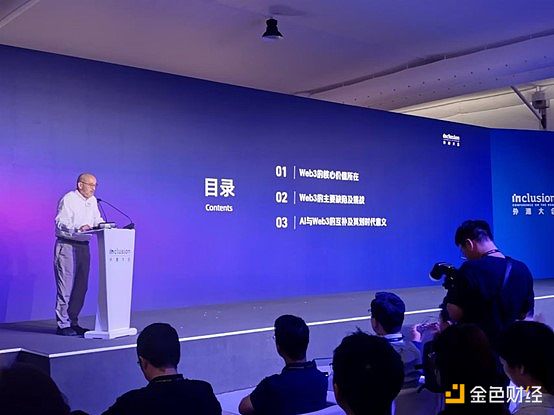
Yan Ying, Chief Scientist of Ant Chain, gave a speech entitled "Technology is Unstoppable: Continuously Evolving Blockchain Fusion Technology for the Future". She pointed out: Since 2018, Web3 has successively experienced the infrastructure construction stage with "on-chain transaction volume" as the measurement standard, and the data value stage with "on-chain data usage" as the main performance. Now Web3 has entered a new "asset integration stage", and the issuance of on-chain assets will move towards scale.
The typical practice of "tokenization" is RWA (Real World Assets-tokenization), which is a form of asset ownership trading on the blockchain in digital form (Token). Compared with the difficulty of confirming ownership and trading physical assets, RWA can split physical assets into multiple "on-chain" digital assets, and bring more liquidity to physical assets with the interoperability of the global blockchain network.
Recently, the Hong Kong Monetary Authority announced an important progress in the first phase of its Ensemble project sandbox, and four tokenization theme cases have attracted widespread attention in the market. Taking new energy charging pile assets as an example, the listed company Langxin Technology, with the support of Ant Digital and the Ensemble project of the HKMA, used some charging piles operated on the platform as RWA anchor assets and successfully obtained the first RWA cross-border financing in Hong Kong, with an amount of approximately RMB 100 million.
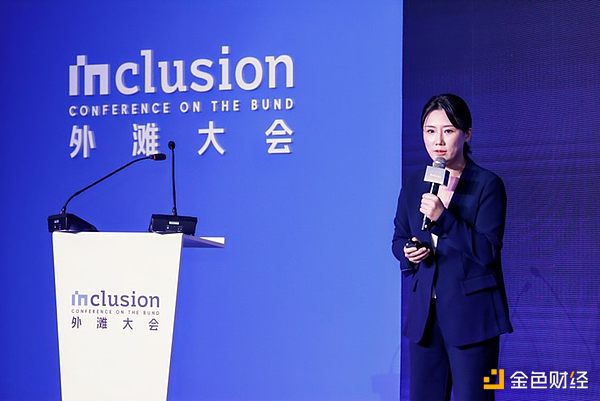
Zhao Yongchao, deputy director of the Shanghai Data Exchange Research Institute, gave a speech entitled "Shanghai-Hong Kong Connect: Shanghai's Exploration of Data Asset Tokenization". Zhao Yongchao discussed the meaning and characteristics of STO and RWA technology; the tokenization practice of Shanghai Data Exchange under the framework of Shanghai-Hong Kong cooperation; and the risk prevention and control and regulatory measures of RWA. He pointed out that numbers have never been a simple tool, but a kind of carrier of human culture, value, and wisdom, which clearly reflects the Chinese way of thinking, Chinese way of thinking, and Chinese cultural characteristics. RWA involves real assets, financialization, data protection, etc. Each of these links has extremely high compliance requirements, such as whether financialization and currency issuance are supported by local laws and policies, whether there is a potential conflict with other laws and policies, and what the regulatory procedures are.
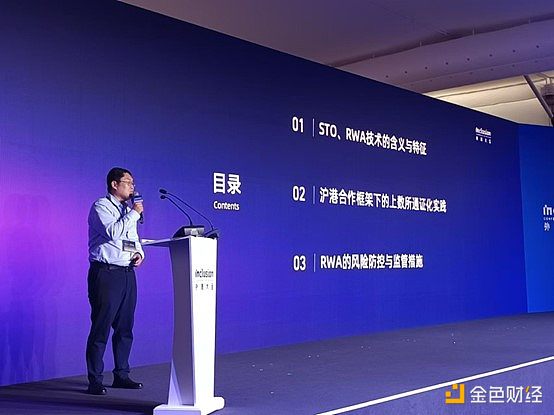
ZAN CEO Zhang Chenguang gave a speech entitled "DT RWA Innovation, Activating Digital World Liquidity". Zhang Chenguang pointed out that the real economy directly creates material wealth, which is a necessity for people's lives and social development, and can bring sustainability and certainty to future economic growth. However, how to provide financing services for the upgrading and transformation of the real industry and asset operation is a new topic, which has three major challenges: the authenticity of asset value, the authenticity of asset operation data, the measurability of asset operation effect improvement and incentive mechanism. To go deep into the "assets" in the real world, three major elements are needed: business data, capital data and equipment data.
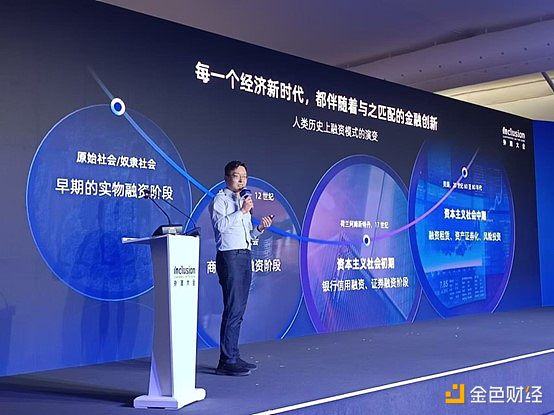
Zhu Dazhi, Co-Head of Technology, Media and Telecommunications Industry in Asia Pacific, Global Investment Banking Department of UBS, gave a speech entitled "Technology Innovation Finance: Frontier Exploration of Digital Asset Application Ecosystem". He pointed out that in today's world, security is still achieved through centralization. With the advent of blockchain technology, we can create securely in a decentralized manner, and we can leverage private and public chains to reduce the need for traditional intermediaries. Using smart contracts can also eliminate multiple layers of intermediaries, which not only simplifies the process, but also improves transparency, reduces the chance of human error, reduces costs, and speeds up emergency process processing. Importantly, in the smart contract governance system, it can ensure that only authorized users can perform specified operations in a regulated ecosystem. UBS may follow four guiding principles when formulating future strategies: innovative product framework, compliant and regulated products, blockchain is technically applicable, and institutional-level services.
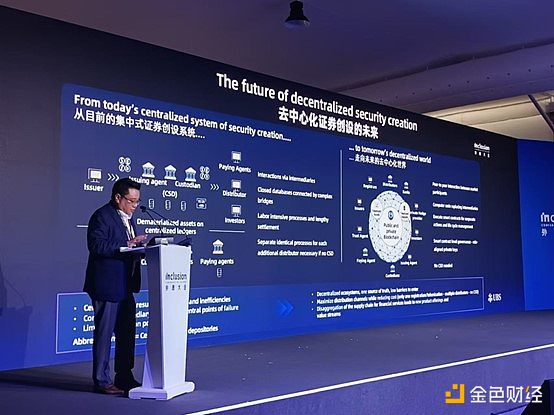
Xu Changjun, Chairman of Langxin Group, gave a speech entitled "Future Energy: Exploring "New" Investment Trajectory and Unleashing the "Energy" of New Energy". He pointed out that the key to the new power system with new energy as the main body is to achieve the coordinated operation of massive distributed energy. Small and medium-sized new energy operators play a key role in the scale of distributed new energy. However, small and medium-sized new energy operators have pain points and needs. RWA can connect financing channels and solve the funding problems of small and medium-sized energy operators.
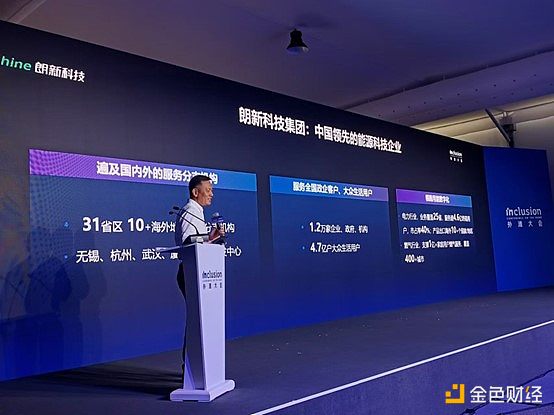
Song Chao, Vice President of GCL Group, gave a live speech entitled "Digital Photovoltaic Storage: Based on the Background of New Quality Productivity, Exploring a New Energy Ecological Pattern".
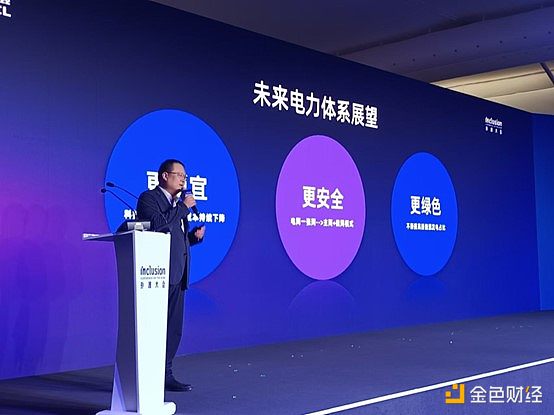
Finally, there was a roundtable dialogue session, with Ant Group Vice President and Ant Digital Technology CFO Bian Zhuoqun, President of Blockchain Business, Weng Chaowei, Senior Vice President of Longsun Technology Group, Zhu Dazhi, Co-Head of Technology, Media and Telecommunications Industry, Asia Pacific, Global Investment Banking Department of UBS, Liu Yanqi, Head of Global Digital Currency of HSBC, Yu Xian, Founder of SlowMist, and Xiao Sa, Senior Partner of Beijing Dacheng Law Firm, launched a discussion titled "Looking into the Future: Possible Paths for RWA to Connect New Global Opportunities".
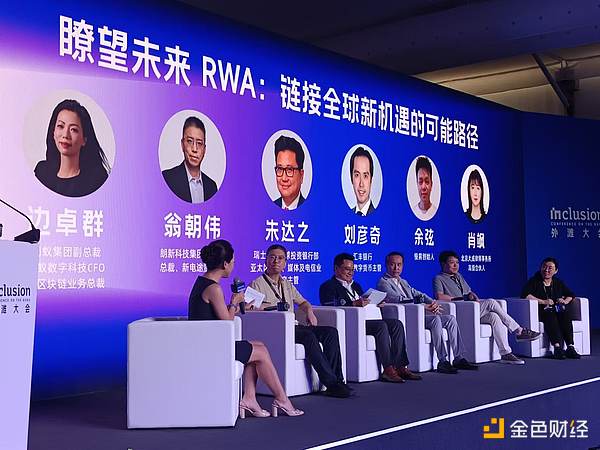
Weng Chaowei pointed out: The supply side is becoming more and more renewable energy-oriented. Many experts in China predict that the total electricity consumption of the whole society will rise to 20 trillion in the next 30 years. The demand for green energy may be solved more through distributed assets. There are three major distributed assets to focus on: the demand for charging piles will be very huge, and the scale and number of assets will increase significantly; the energy storage assets of users will increase exponentially; network assets, such as smart microgrids, will grow rapidly. These assets can participate in the main network interaction and generate more income. I hope more funds can see the value of these assets.
At present, RWA investors are willing to look at credit and ratings, and hope to see more asset operations in the future, and hope that RWA will become more and more globalized in the future, and hope that domestic asset liquidity will be higher.
Zhu Dazhi pointed out: Investors should be willing to try new assets in the general direction of RWA. Transparency and efficiency will be conducive to investors' decision-making, reduce the risk of information asymmetry, and the tokenized economy will also bring huge opportunities to the banking and financial industries. Investors are actually more concerned about some issues: first, compliance, whether it can provide investors with enough confidence under different regulatory frameworks; second, product innovation, investors and issuers can provide an end-to-end comprehensive service, including product issuance and sales.
The future is optimistic about the development prospects of RWA, and smart contracts solve many problems in the financial industry. In different fields, we also need to make more efforts to ensure the compliance of products. The industry is currently in a stage of rapid development, and the development of tokenization will be very fast in the future.
Liu Yanqi pointed out:There are still many challenges in the tokenization of real estate assets, such as compliance issues, asset operation, data transmission, and especially cross-border issues, which need to be done better. In the short term, we find that traditional bonds and other familiar financial products can be implemented; in the medium and long term, AI and IoT are the general direction of tokenization.
Yu Xian pointed out:Once RWA is implemented with relevant smart contracts, we must first make sure that there will be no loopholes, because everyone knows that as long as the asset issuance is based on blockchain, it will face attacks from all over the world; secondly, there are a lot of money laundering risks in the industry, and it is necessary to strengthen the attention to anti-money laundering issues on the public blockchain.
Many project parties have different regulatory policies in their locations. The assets I see can be divided into two categories: one is stable, such as US bonds, gold and other convertible assets; the other is to issue tokens under the gimmick of RWA, which may hide some transaction risks. We see that there are many risks on the public blockchain, and credibility and endorsement are crucial. The essence of blockchain is that it can solve the problems of human future development. RWA should have many opportunities to combine with entities in the future.
Xiao Sa pointed out: For assets, if the entity is divided equally, it is a process of financialization, which requires a license to achieve. At present, this field is still facing some difficulties, and Hong Kong provides us with a good opportunity. The mainland tends to be a statutory system and will be more conservative when facing new products. Hong Kong has fewer statutory laws and pays more attention to opportunities. We must pay attention to the integration of the two legal systems.
 JinseFinance
JinseFinance
 JinseFinance
JinseFinance Coinlive
Coinlive  cryptopotato
cryptopotato Beincrypto
Beincrypto decrypt
decrypt Bitcoinist
Bitcoinist Coindesk
Coindesk Beincrypto
Beincrypto Bitcoinist
Bitcoinist Cointelegraph
Cointelegraph